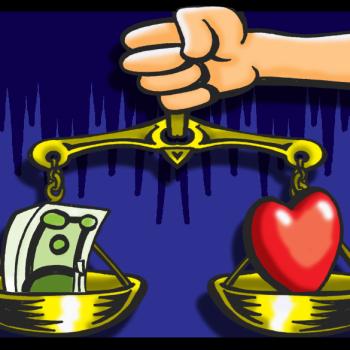The plain fact of the matter is that I never had the talent to play baseball at a professional or even at a top collegiate level, but somehow my limitations never came into play in the equations with which I thought about my relations to the game. For me it was a failure of being, a failure to be a man. Once I lost a game 3 to 0 in which I had pitched twelve innings. I pitched well that day. We just never got any runs. It's hard to win a game if you don't score. Yet, I blamed no one but myself for that loss. I should have hit a home run in the ninth inning. I should never have given up three runs in the twelfth inning. I also made two errors in the game in part because I was exhausted but unwilling to tell the coach he should take me out. I could not be satisfied that I had pitched eleven innings of shutout ball. All I knew was that we had lost, and it was my fault. I just didn't have what it took. On days like that, baseball becomes not something one plays but a field where you attempt to prove your capacity as a man. It is not a game but a nut cutting. I left the field that day with that gutted, empty, impotent feeling. I could not enjoy the eleven innings I pitched well. All I could do was rehearse over and over again the series of events that led to their three runs. Seeing reports in the newspaper the next day was not so much like reading my obituary but rather like reading some inappropriate account of my castration. Some days dying seemed better.
I don't mean to suggest that there were no wonderful moments. There are those times when baseball has a transcendent character. To see a fastball move in on a hitter and "jump" as he swings and then bury itself into the catcher's mitt. To be in the groove and to throw strike after strike, to be able to do, seemingly at will, whatever you want to do with a pitch. In the outfield to go after a long drive hit directly over your head so that you are running "full tilt" with your back to the plate, and at the last moment to jump, fully extended, and catch the ball in the webbing of the glove. To then tumble to the ground but come up throwing and fire a strike to second base. To hit a ball right-when you hit it supremely right, you can hardly tell you make contact because the head of the bat just seems to go right through the ball-and then to watch that ball take off in a long drive bending away from the outfielder and past him. Then to hear, "It's gone! Home run!" Something happens in events like that that seems to make the whole world come together. No sport puts a player alone with a ball the way baseball does. So that when the play comes to you, it is you and the ball. It is a Rocky Mountain high. It can be so thoroughly real-in the sense that absolutely nothing else seems to matter, at least in that ecstatic, transcendent moment.
It can also be so terrifying that you wonder if you can move. I'm sure that the truly good players see such moments as kairoi, as instants filled with chances and opportunities to make the good catch, or as a runner to take the extra base, or to make the outfield a stage and the moves with the ball a dance of grace and artistry. But for those of us with much less talent, so many of those moments are filled with what might have been. It is no matter of a few times; it is the dominant character of one's memories of games, a serial tradition of failure. In any time of memory about baseball, I can "live through" twenty or twenty-five moments in which I had the opportunity to make the good play, but did not: missing a routine throw, or as a catcher losing my grip on the ball in a collision at home plate, or striking out with the bases loaded in a game-decisive moment, or as a pitcher walking home the winning run. I can be so lost in the compulsive, riveting reverie of such that I am brought to self-consciousness only by the twitching of my body in an attempt to redo, to redeem the action.
It simply became difficult to play baseball. I suppose that's it. The longer I was in the game, the less I could play it. It was no longer a game; it was an acid test of manliness, often "warfare," winning and domination. It was the place where you kicked ass or got yours kicked. It was supposed to be a game, but it took on the seriousness of war. I suppose that's a way of saying it is American.
In this connection, I am struck most today by how violent the language has become in sport, baseball included. The language is that of a fight when it is not one of war. The talk is not simply about winning; it is about humiliating your opponent. It is about whipping the other team, about making them look bad, about dominating them, about kicking their ass. With that the push is, of course, to be number one, to make it to the top, to be the winner. Here the problem is that "kicking butt" is not intrinsic to baseball. Playing is.
At this point it is too easy to take this in the direction of winning and works righteousness and to suggest instead that we receive our worth through God's grace and that the direction of life needs to be toward wholeness and not toward winning and domination. It is also too easy to move into a critique of American culture and to work with those big abstractions. In my experience all that, even while it is true, doesn't do much good. At least, it never helped me. Besides, I see too many athletes today who use faith to secure competitive advantage, and if you think Jerry Falwell is a bad theologian, take a look at some of these evangelical ballplayers.




